#nikolay burlyaev
Text
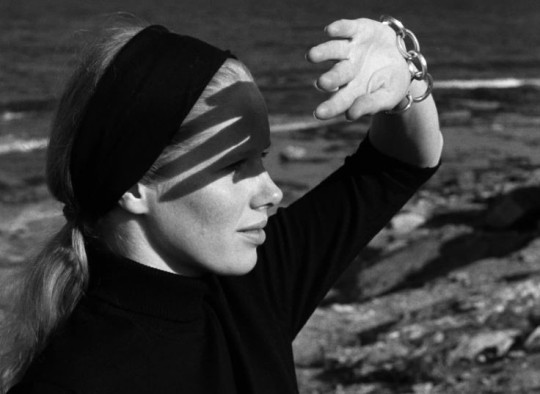
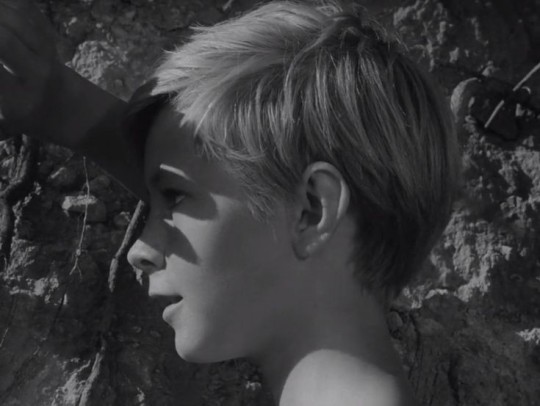
Persona (1966), Ingmar Bergman // Ivan's Childhood (1961), Andrei Tarkovsky
#film#cinema#movies#photography#art#actors#cinematography#film photography#vintage#movie parallels#parallel#persona#ingmar bergman#liv ullmann#ivan's childhood#andrei tarkovsky#nikolay burlyaev#60s#1960s#60s movies#1960s films#swedish cinema#russian cinema
122 notes
·
View notes
Text

Nikolai Burlyaev as Ivan Bondarev in Ivan's Childhood (aka My Name is Ivan, 1962). Nick was born in Moscow and has 53 acting credits from a 1961 short, this, his second credit, to 2011. It looks like all his credits are in the USSR. He also has three director credits. Nick's other notable credits include Andrei Rublev, also directed by Tarkovsky.
0 notes
Text
It's the final countdown best-of: top ten films of 2023! I watched over 200 movies this year, so this was pretty wrenching, but I'm happy with my choices. As in past years, the list is unranked, because I can only push myself so far.
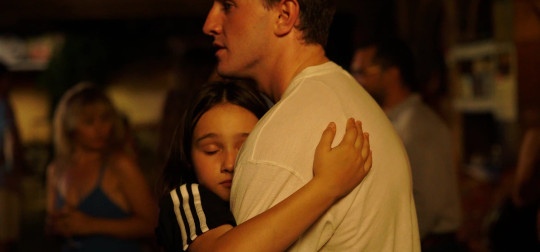
Aftersun (2022) - I started crying in this movie's third act and I maybe haven't stopped since. I don't know if I have the words for how much this film affected me. The performances, the visuals, the raw and bleeding heart at the center of it. Just overwhelming.
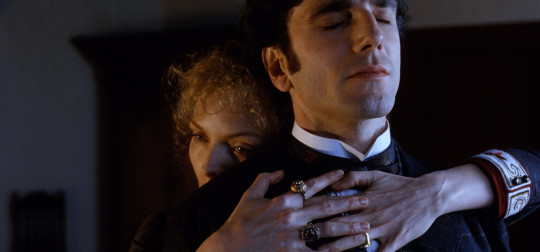
The Age of Innocence (1993) - If I'd known I was going to watch a ton of Scorsese films this year and had bet on which one would make my top ten, it would not have been this. (For the record, GoodFellas, Killers of the Flower Moon, and The Irishman all made the short list when I was deciding on my ten.) I'm not even sure I knew Scorsese directed this film before this year, I'm sad to say. But The Age of Innocence immediately crawled under my skin. The longing in it is unreal. I've been thinking about this one for months.
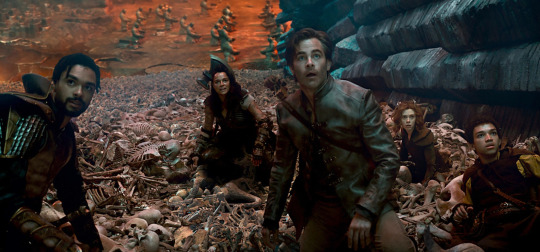
Dungeons & Dragons: Honor Among Thieves (2023) - One of two films I watched twice this year, and honestly, putting this list together made me want to watch it again. An intensely charming blend of found family, heist tropes, and D&D Easter eggs. But, I think most critically for me, while it's funny, it's also totally sincere. I don't think I was aware of how sick I was of irony in action and adventure films until I got my hands on one basically free of it. It made me cry both times. A fantastic surprise of a film.
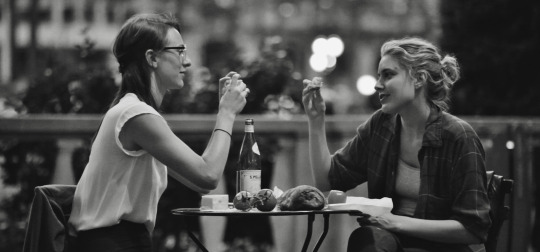
Frances Ha (2012) - Friend breakups aren't a wildly common subject in filmmaking: not unheard-of, but certainly not something you see frequently. But Frances Ha hit me directly in the feelings in a way I was unprepared for. Your mileage may vary, since this hits a lot of beats close to, or sometimes exactly like, my own mid-20s experience. But I suspect that even without that, the movie would have moved me. Also a truly great New York City film.
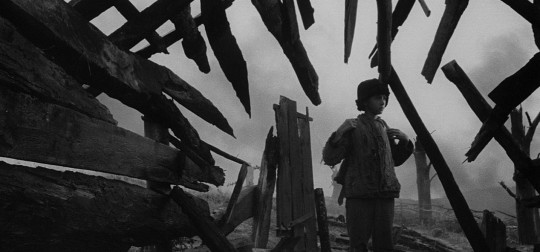
Ivan's Childhood (1962) - I came into this film already a Tarkovsky fan, but unreal to see how assured and effective he was in his first feature-length film. Those crane shots!! The entire effect is poem-like. Nikolay Burlyaev is also wildly good as Ivan; hinging an entire film on a child's loss of innocence really banks on the right child actor, and Burlyaev is terrific. Full-on tragedy.
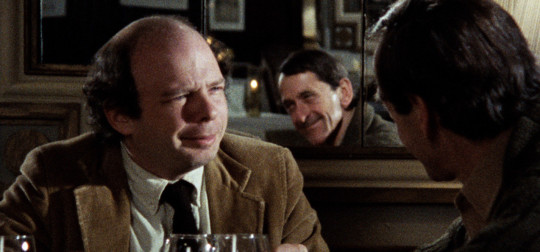
My Dinner With Andre (1981) - I said it when I first watched it and I'll say it now: How does this movie work??? It should not be good! Wallace Shawn and Andre Gregory as versions of themselves, sitting in a restaurant for just under two hours and having a conversation. Yet somehow I was never bored, and I've been turning the film over and over in my mind since I saw it. Gregory and Shawn's talents as writers are on full display, but director Louis Malle pulls a deft magic trick in that it really does feel like a movie and not a recorded play. Wild.
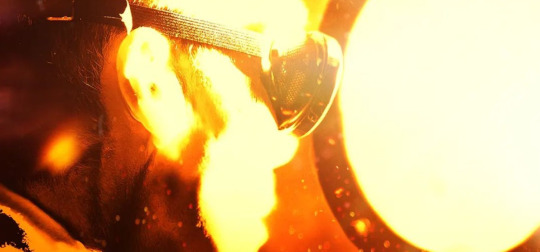
Oppenheimer (2023) - I fully admit this is an imperfect film (parts of it are baggy; Nolan still has no idea what to do with women; etc.). But it still makes my list. First, the cast is terrific. Obviously Cillian Murphy, whose work I've always enjoyed, but also Robert Downey, Jr., Josh Hartnett (!), David Krumholtz, even the nasty little turn from James D'Arcy as Oppenheimer's professor: so many great moments. And second, the entire Los Alamos test sequence was maybe the most indelible experience I had in a movie theater this year. Overwhelming.

RRR (2022) - It's about the cones friendship! I watched this movie with friends, and we spent the entire runtime yelling in delight about its maximalist choices, from fight scenes to dance scenes to montages. But the central relationship at the heart of the film is what really made me go feral for it. I am glad I read a bit more afterward about the context (this is a good starting place, if you're interested), most of which I didn't have going in. But on the film's own merits, it's easy to see why RRR achieved such global success.
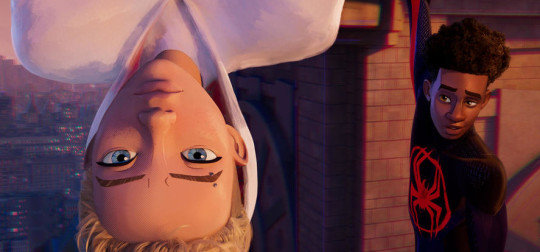
Spider-Man: Across the Spider-Verse (2023) - Into the Spider-Verse was one of the best superhero movies of all time, so the sequel was always going to have a heavy weight to lift. But while this really does feel like half a story to the predecessor's whole one, I was blown away by the sheer visual beauty of Across the Spider-Verse. It leveled up on the creativity and artistry, but always used them to enrich the story. A gift to all of us.
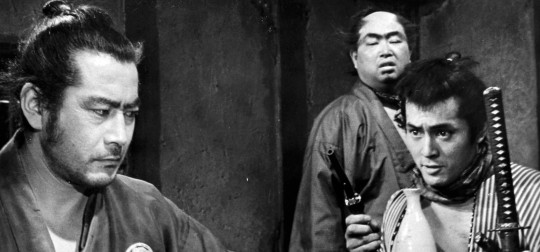
Yojimbo (1961) - Wow, Kurosawa never misses, huh? Mifune is, as always, incredible. But I was also dazzled by how ably Kurosawa navigates a variety of tones. Is this movie funny? For sure. Is it melancholy? Yes. Is it bleak? That too. From the score to the camerawork, everything about Yojimbo works beautifully.
HONORABLE MENTION:
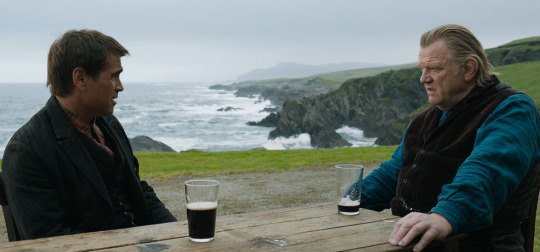
I did my 2022 list, it turns out, slightly too early. I watched The Banshees of Inisherin (2022) on Dec. 30 last year, and it absolutely would have made the top ten if I hadn't already published it. So it gets a special shout-out here instead.
3 notes
·
View notes
Text
On July 18, a group of lawmakers from the Communist Party (KPRF) and A Just Russia submitted a bill to the State Duma on banning “the denial of family values” and “the promotion of non-traditional sexual orientations.”
In the bill’s explanatory note, the authors argued that denying family values, promoting the “childfree” lifestyle, and “popularizing non-traditional sexual orientations” are no less dangerous to the development of Russian society than the promotion of suicide, drugs, extremism, and other types of illegal behavior.
The proposed bill echoes the infamous “gay propaganda” law Russia adopted in 2013. Among other things, the 2013 legislation amended the Code of Administrative Offenses with Article 6.21, which outlines penalties for “promoting non-traditional sexual orientations among minors.” Individuals found guilty can be jailed for up to 15 days, while organizations can be fined up to one million rubles ($17,000) or forced to suspend operations for up to 90 days. In practice, this statute has been used to persecute LGBTQ+ rights activists.
The authors of the new draft law believe that the 2013 legislation didn’t go far enough. They even argue that the “approval and recognition” of “non-traditional sexual orientations” poses demographic and economic threats.
The bill’s authors also proposed imposing additional restrictions on Russia’s film industry, including an explicit ban on issuing distribution certificates to films that “promote the denial of family values and non-traditional sexual orientations.” The draft legislation does not clarify what constitutes “promotion” (propaganda, in Russian) or “the denial of family values” — nor does it outline specific penalties for violations.
Among the bill’s authors are Nina Ostanina (KPRF), who heads the State Duma Committee on Family Issues, Nikolai Burlyaev (A Just Russia), and Rodina party leader Alexey Zhuravlev (a member of the LDPR faction).
In a recent interview, Ostanina connected the development of the draft law to Vladimir Putin signing a decree establishing July 8 as Family Day in Russia. “For us, a traditional family is a union of a man and woman, it’s children, it’s a multi-generational family. And the promotion of ‘childfree’ in this case is just promoting the rejection of traditional family values,” the lawmaker told News.ru.
In the same interview, Ostanina accused well-known directors Kirill Serebrennikov and Konstantin Bogomolov of “promoting non-traditional relationships.”
A few days later, on July 21, Ostanina proposed making the dissemination of “gay propaganda” a criminal offense. Nina Ostanina did not respond to Meduza’s questions.
2 notes
·
View notes
Text
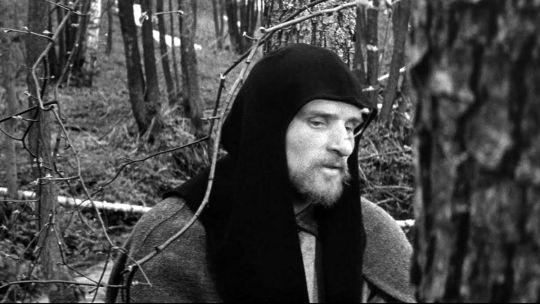
Anatoliy Solonitsyn in Andrei Rublev (Andrei Tarkovsky, 1966)
Cast: Anatoliy Solonitsyn, Nikolay Grinko, Nikolay Sergeyev, Nikolay Burlyaev, Ivan Lapikov, Irma Raush, Yuriy Nazarov, Yuriy Nikilin, Rolan Bykov, Mikhail Kononov. Screenplay: Andrey Konchalovskiy, Andrei Tarkovsky. Cinematography: Vadim Yusov. Production design: Evgeniy Chernyaev. Film editing: Tatyana Egorycheva, Lyudmila Feyginova, Olga Shevkunenko. Music: Vyacheslav Ovchinnikov.
Has any filmmaker ever made more eloquent use of the widescreen format than Andrei Tarkovsky does in Andrei Rublev? It was a process developed by Hollywood to help win its war with television -- bigger naturally assumed to be better. In Hollywood, it usually went hand-in-hand with color, and although the various widescreen processes -- Cinerama, Cinemascope, VistaVision, etc. -- were used in black-and-white films, they often feel out of place today. A case in point: The Diary of Anne Frank (George Stevens, 1959), which won an Oscar for the cinematography of William C. Mellor, but which seems to cry out for a format less expansive than CinemaScope, in which the Frank family's attic loses its cramped and confined essence. Andrei Rublev was filmed in a process called Sovscope, which like CinemaScope used anamorphic lenses to produce a 2.35:1 aspect ratio. Tarkovsky and cinematographer Vadim Yusov artfully work with the expanse of the screen, not shying away from closeups but also doing extraordinary movement with the camera. One of the earliest scenes takes place in the barn in which Rublev and his fellow artist-monks take shelter from the rain. We are given an astonishing 360-degree pan inside the barn, circling from the monks to the other denizens of the shelter and back to the monks, a study in faces that establishes one of the film's major subjects: the nature of Russian humanity, which also becomes an abiding concern of Rublev's. (I think there's a witty acknowledgment of the nature of widescreen in that the peep-hole cut into the wall of the bar seems to have the same aspect ratio as the film.) And in the concluding sequence, there is a magnificent pan from the gates of the walled city of Vladimir below and the emerging procession up to the structure that holds the newly cast bell, where Boriska (Nikolay Burlyaev) waits anxiously. Andrei Rublev is one of those films I can't help rewatching; even though (or perhaps because) it's slow and challenging, it more than repays frequent viewings. Tarkovsky is not a director to be taken lightly, and the moment you begin to be lulled by the magnificence of Yusov's cinematography or Vyacheslav Ovchinnikov's score, the director is likely to shock you with images of cruelty and brutality but also of beauty that make you sit upright. A "trigger warning" might be especially needed for lovers of animals, given the harshness with which they are occasionally treated: There is a scene with a cow on fire that will likely haunt me for a long time.* But all the unpleasantness in the film is in service of a story about the persistence of the Russian people and the transcendence of art. Anatoliy Solonitsyn, who plays Rublev, looks a bit like Viggo Mortensen, and recalls for me the tormented masculinity you find in some of Mortensen's performances. Another standout performance is given by Tarkovsky's wife, billed as Irma Raush, as the "holy fool" Durochka, whom Rublev saves from a massacre by the Tatars by killing the assailant -- leading Rublev to atone by giving up his painting and taking a vow of silence. The last section of the film is given over to young Boriska, played by Nikolay Burlyaev, the astonishing Ivan in Tarkovsky's Ivan's Childhood (1962), who takes on the task of casting a church bell despite the suggestion that he will be murdered by the tyrannical Grand Duke (Yuriy Nazarov) if he fails. Although the film is in black-and-white, it concludes with a breathtaking color sequence in which Rublev's paintings are shown in close-up. To my mind, this final ecstatic survey of Rublev's work is the only section in which Tarkovsky is thwarted by the widescreen process: Rublev's paintings had an aspiring verticality that is at odds with the dimensions of the screen.
*The scene, I learned, on a recent re-viewing of the film, doesn't exist in all versions. In addition to versions made by Soviet censors, Tarkovsky himself made two: His original version ran 205 minutes, but he also made a "final cut" that runs 183 minutes.
1 note
·
View note
Link
0 notes
Photo
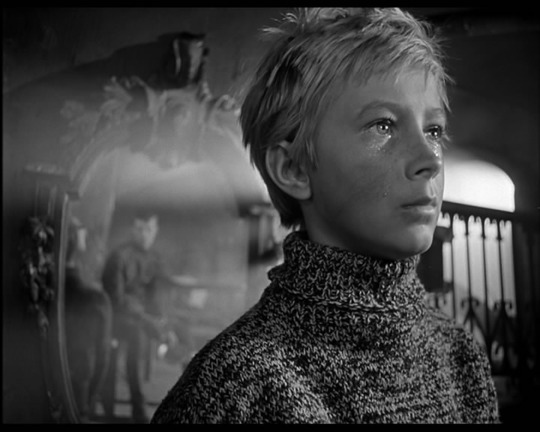
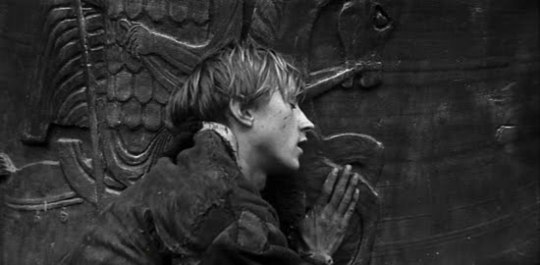
Ivan’s Childhood (Andrei Tarkovsky), 1962
Andrei Rublev (Andrei Tarkovsky), 1966
#films#movies#stills#Andrei Tarkovsky#Ivan's Childhood#Andrei Rublev#Nikolay Burlyaev#1960s#Soviet#Russian
79 notes
·
View notes
Photo
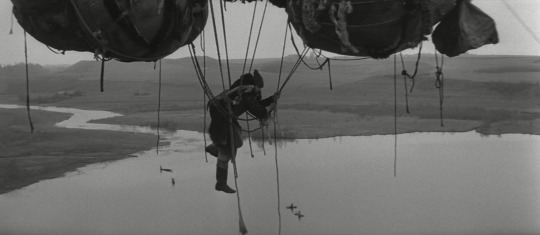
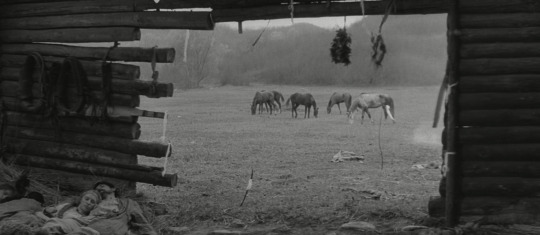




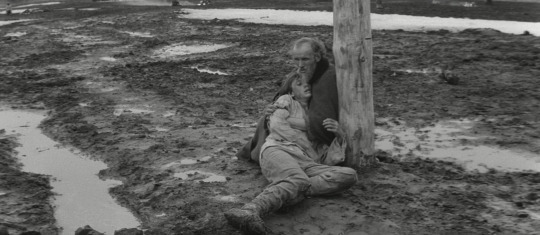


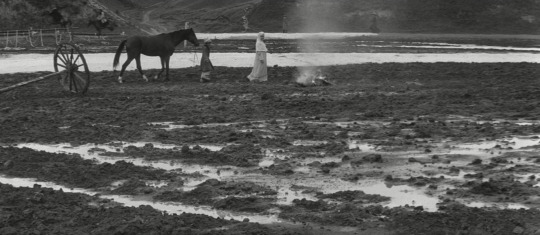
“People should be reminded more often that they are human beings.”
Andrei Rublev (Andrei Tarkovsky, 1966)
#Andrei Rublev#Andrei Tarkovsky#tarkovsky#tarkovski#andrei tarkovski#quote#black and white#long shot#nature#animals#dogs#horses#andrey tarkovsky#Andrey Rublyov#Anatoliy Solonitsyn#van Lapikov#Irina Tarkovskaya#Nikolay Burlyaev#Nikolay Sergeev#Irma Raush#1966
1K notes
·
View notes
Photo
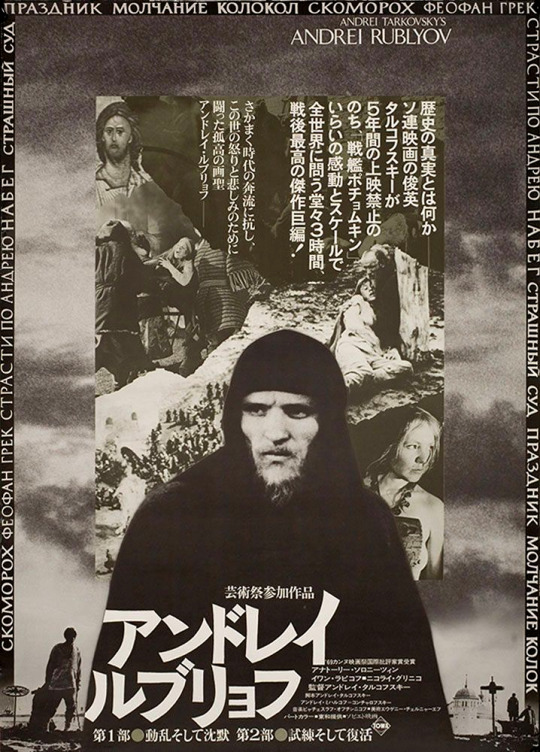
Andrei Rublev | Andrei Tarkovsky | 1966
113 notes
·
View notes
Photo
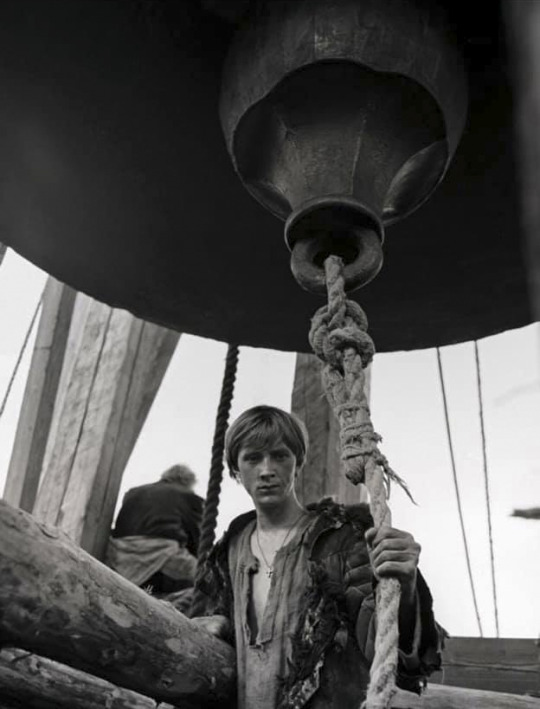
Andrei Rublev | 1966
Nikolay Burlyaev in the role of Boriska
68 notes
·
View notes
Text
I’ve been engaging in a Solo Quarantine Tarkovsky Film Fest and I have to say that Nikolay Burlyaev (Ivan in Ivan’s Childhood; Boriska in Andrei Rublev) would have been a superb Francis Crawford of Lymond
#(in an imaginary russian adaptation a few years behind the original publication of the novels)#andrei tarkovsky#nikolay burlyaev#(in the imdb transliteration)#LYMOND#(i mean can you imagine a gok lymond who actually looks like a teenager)#(but does his best to make you forget it)#(and mostly succeeds)
5 notes
·
View notes
Photo
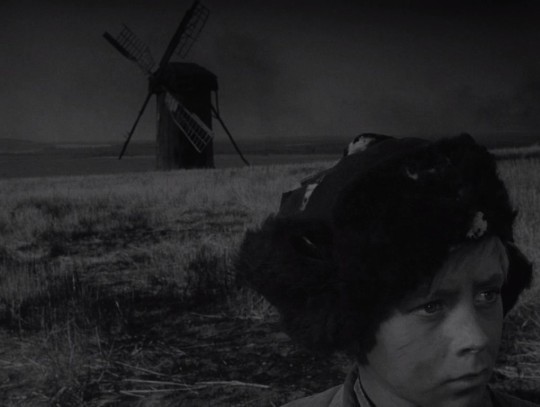
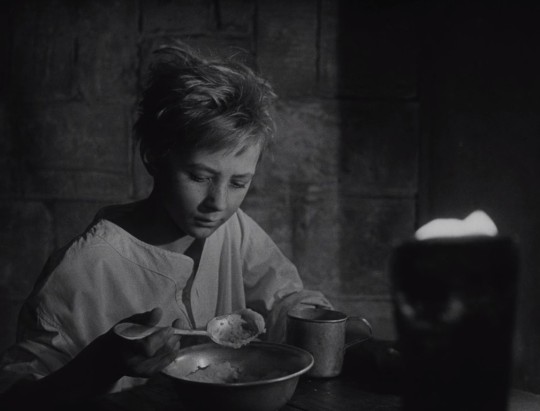
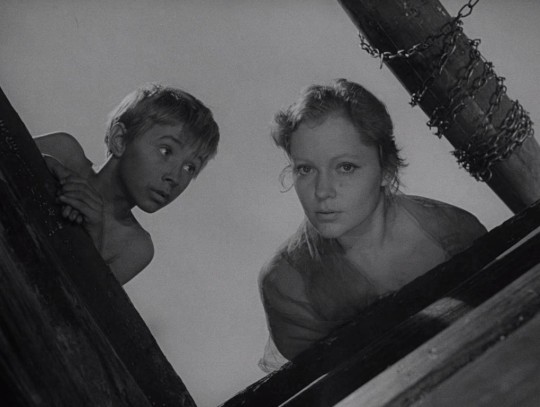
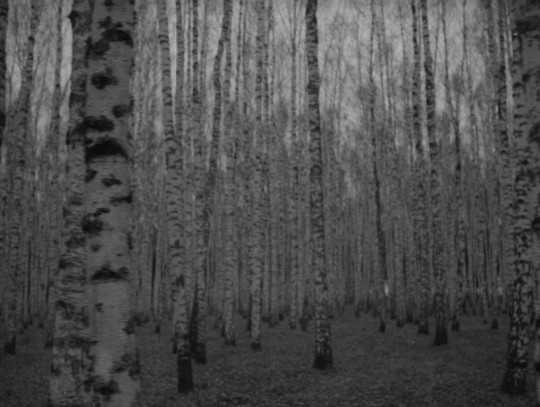
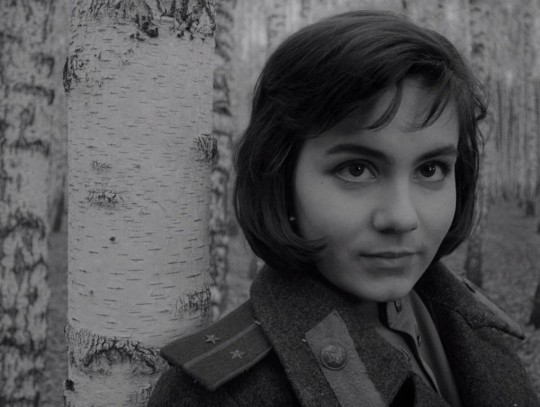

Ivanovo detstvo (Ivan’s Childhood) (Andrei Tarkovsky & Eduard Abalov, 1962)
Gonna fuck around and watch all the Tarkovsky this year. This is a very fine film! Does anybody do utter despair like the Russians? This movie has such sadness, and you can feel the oppressiveness of the war and the world they’re living in - even the rooms and woods they move through feel heavy. Everybody has such heavy hearts. But obviously what’s critical are the moments of joy and sunlight and running free with the ones you love. I went into this with no ideas of what it was about. I’m curious how it’s going to settle in my memory, and also what I’ll think of it when I watch it again.
#ivanovo detstvo#ivan's childhood#andrei tarkovsky#eduard abalov#nikolay burlyaev#valentina malyavina
7 notes
·
View notes
Photo
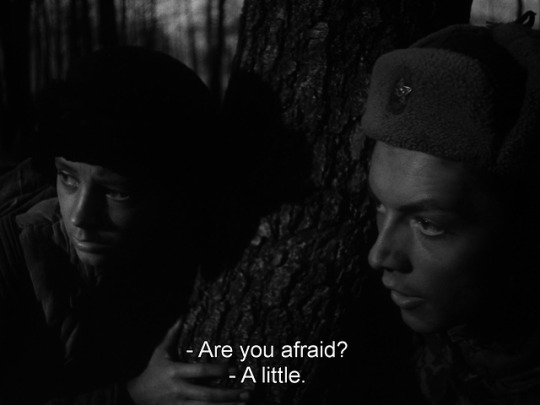
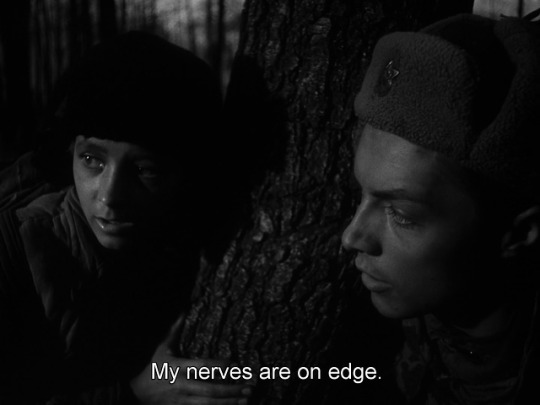

Ivan’s Childhood (1962)
#ivan's childhood#ivanovo detstvo#andrei tarkovsky#nikolay burlyaev#evgeniy zharikov#movies#film#quotes#fear#1962
211 notes
·
View notes
Photo
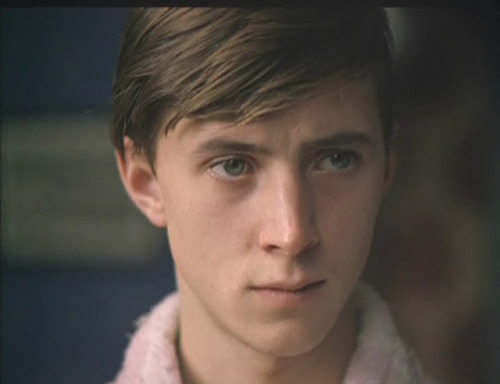
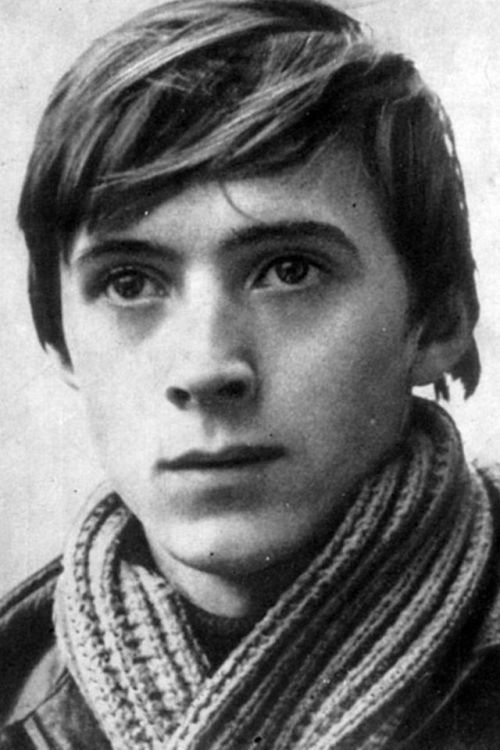
2 notes
·
View notes
Text
Ivánovo detstvo
Por Briseida Alcalá
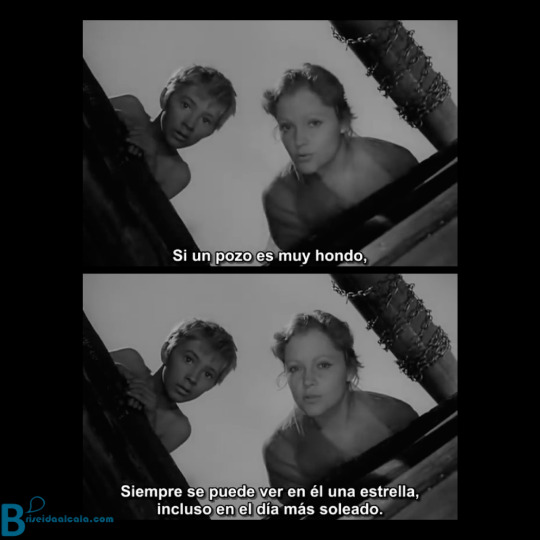
El extravío absoluto de la inocencia es otra de las marcas de guerra en Ivánovo detstvo, la opera prima del ahora imprescindible Andréi Tarkovski.
Seguir leyendo.
#Ivanovo detstvo#La infancia de Iván#drama#unión soviética#soviet unión#1962#alemán#ruso#russian#german#largometraje#feauture film#Andrei Tarkovsky#Tarkovsky#Nikolay Burlyaev#Leone d'Oro"#león de oro#ganador del león de oro#Festival Internacional de Cine de Venecia#Mostra Internazionale d'Arte Cinematografica di Venezia#classic film#clásico#película clásica#cinema#cinematografía#cinematography#Vladímir Bogomólov#adaptación#adaptation#filme
1 note
·
View note
Text
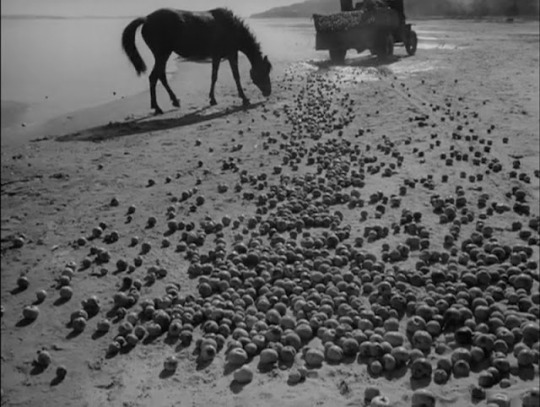
Ivan's Childhood (Andrei Tarkovsky, 1962)
Cast: Nikolay Burlyaev, Valentin Zubkov, Evgeniy Zharikov, Stepan Krylov, Nikolay Grinko, Dmitri Milyutenko, Valentina Malyavina, Irina Tarkovskaya, Andrey Konchalovskiy. Screenplay: Vladimir Bogomolov, Mikhail Papava, based on a story by Vladimir Bogomolov. Vadim Yusov. Production design: Evgeniy Chernyaev. Film editing: Lyudmila Feyginova. Music: Vyacheslav Ovchinnikov.
There are scenes in Ivan's Childhood that would work in the hands of only Andrei Tarkovsky. The famous scene in the birch forest, in which Kholin (Valentin Zubkov) straddles a trench and kisses Masha (Valentina Malyavina) while dangling her over it is completely extraneous to Ivan's story, as are almost all the scenes in which Masha, the physician's assistant, appears. And Tarkovsky never falls into the trap of sentimentality in the dream sequences, including the film's ending. In fact, I think it's a mistake to call them "dream sequences" -- they mostly avoid the conventions of movie dreams like odd angles or camera tricks or surreal elements. They're really memory pieces, explorations of the other side of Ivan's childhood, the innocent years of peace, poetically interpolated into the harshness of war. In fact, the "real" sequences are often more dreamlike than the memories: the dizzying ghostlike trunks of the birch trees, the flares falling silently like meteorites, the spiky war ruins that threaten to impale. It's a heartbreaking film because Tarkovsky refuses to pull out all the melodramatic stops but lets his images speak for themselves and because Nikolay Burlyaev performs with such conviction as Ivan, in one of the greatest performances by a child ever captured on film. It's probably the most poetic war film ever made because the war recedes into the background as a thing remembered.
0 notes